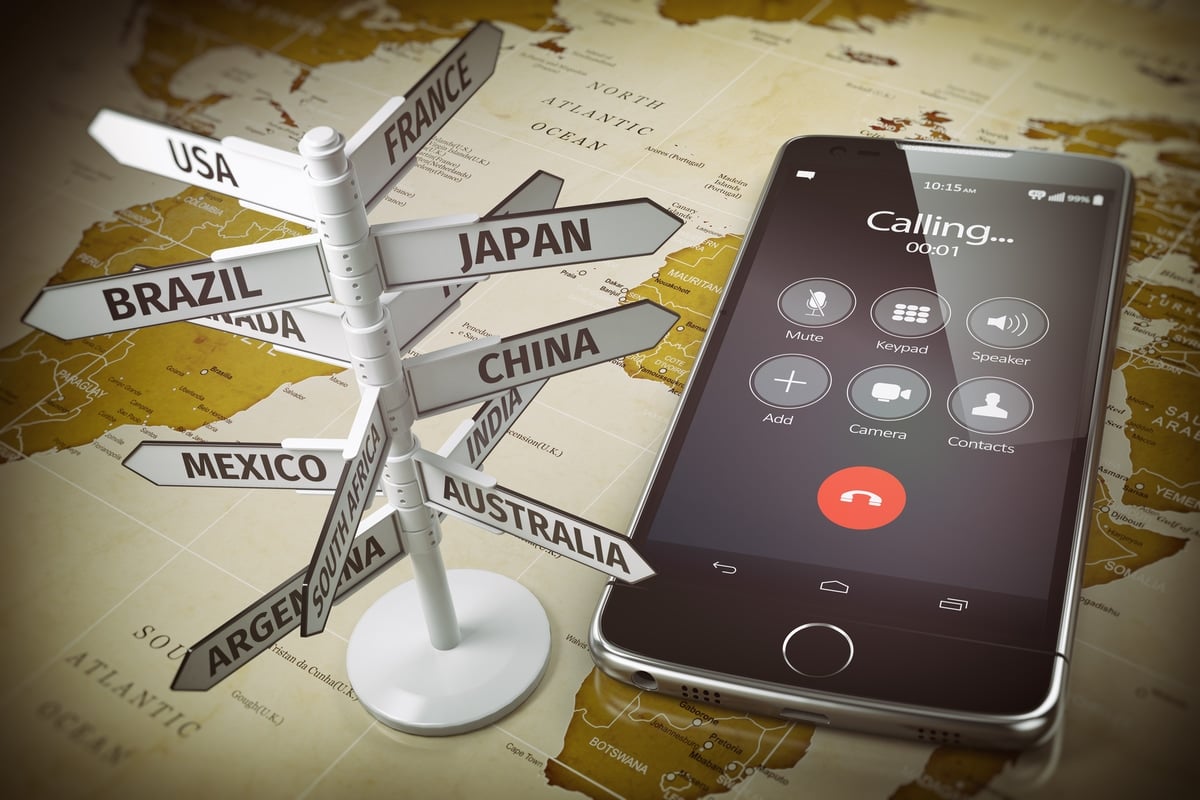adverts
MTN, Telkom, and Vodacom have warned industry regulator Icasa not to restrict the amount they are allowed to charge international operators for placing calls to South Africa.
Vodacom told the regulator that it is currently paying more money to operators overseas than the other way around.
“South African consumers still cross-subsidise users and governments in other countries. Icasa needs to ensure that the Draft Regulations do not make this worse,” it said.
adverts
This comes after the Independent Communications Authority of South Africa (Icasa) released new draft call termination rate regulations for public comment in March 2024.
Call termination rates are the fees network operators charge when connecting voice calls to one another.
The terminating operator charges the source network an agreed-upon or regulated tariff for connecting a subscriber’s call to its network.
For example, when a Vodacom subscriber places a call to someone on Cell C, Cell C charges Vodacom a fee for terminating the call.
Icasa’s draft regulations propose regulating international termination rates (ITRs) charged by large operators in South Africa.
It said these rates may not be less than their domestic fees or more than what international operators charge them.
These regulations would only apply to Vodacom and MTN’s mobile networks, and Telkom’s fixed-line network.
In response, all three networks argued that there was no market failure in ITRs that warranted Icasa’s intervention, citing players like Skype and WhatsApp as competition.
They also highlighted international bypass fraud as a major problem that Icasa’s regulations fail to address.
International bypass fraud is when an overseas operator makes its calls look local so it only has to pay lower domestic interconnect rates rather than ITRs.
MTN said unscrupulous international players perpetrate this fraud using methods like Simboxing, Call Line Identification manipulation (spoofing), and SIP gateways (refiling).
“Regulation is required to address these bypass practices,” MTN said in its submission to Icasa’s draft regulations.
“We request that Icasa set clear rules on what is permitted in respect of the use of operator numbers in Call Transit and Call Forwarding scenarios to ensure these types of calls are not contravening South Africa’s Numbering Plan Regulations.”
“Regulations addressing international bypass would also be in the interest of national security as the use of incorrect call line identities means local law enforcement agencies are unable to determine the true identity of the calling party.”
MTN cautioned that attempting to regulate ITRs using the principle of reciprocity could have the opposite effect of what it intends.
“Various international operators charge higher ITRs than MTN,” it said.
“Mandating operators in South Africa to reciprocate high foreign ITRs will mean MTN will have to increase their ITRs more often than decrease its ITRs.”
Icasa also can’t prevent international operators from hiking their ITRs to retain their margins.
MTN described a scenario where it ends in a cycle of ever-increasing rates because an international operator keeps hiking its prices to maintain its net inflow of ITRs.
“The moment MTN matches the international operator’s ITR, it will increase its rates because that operator wishes to offset increased expenditure with increased revenues,” said MTN.
“That means that MTN would by necessity through mandated reciprocity be obliged to increase its rates again to match the operator’s new rate.”
For this reason, MTN said that although it believes ITRs shouldn’t be regulated at all, it supports Icasa’s proposal to allow operators to set them between their domestic rates and the rate foreign operators charge.
However, MTN said the regulation should not only apply to Vodacom, Telkom, and itself, but to all licensees.
Vodacom said that Icasa should adopt the European Commission’s approach.
If an international operator’s termination rates are equal to or below South Africa’s domestic rates, then local operators may only charge the domestic rate.
However, if the international operator charges more, our local operators can charge whatever they want.
While Vodacom, MTN, and Telkom objected to Icasa’s ITR proposal, the Internet Service Providers’ Association of South Africa (Ispa) welcomed it.
“ISPA welcomes this initiative to curb — to a degree — the excessive costs charged by local licensees for the termination of internationally originated calls,” it stated.
However, Ispa said in its submission to Icasa that the draft regulations do not consider the role of international transit carriers in global voice interconnection.
“As a general rule, calls originated on the network of a foreign operator are not handed over directly to a terminating local licensee,” it explained.
“These calls are transited through one or more third-party networks — generally the larger providers in the mobile and fixed termination markets.”
This means operators like Vodacom and MTN often don’t know where a call originated.
“This lack of clarity complicates the application of appropriate rates, highlighting the need for robust mechanisms mandated by Icasa to differentiate and classify internationally originated calls,” Ispa stated.
“As a result, we have concerns that the reciprocity principle will not be complied with, or, worse yet, will be applied discriminatively in a manner that seeks to preclude our members from providing South African termination services to the international market and to limit competition.”
Ispa suggested that Icasa consider Ofcom’s approach in the UK, or the European Union’s approach.
“Importantly, the concept of reciprocity is applied at a country level between regulators and not left to individual licensees to determine,” it stated.
“Reciprocal rates are binding on all licensees within a jurisdiction through the regulatory actions of regulators.”


